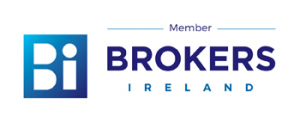The “2018 National Skills Bulletin”, published by SOLAS, makes for interesting reading if you are running a company; you need to know what is in store for the labour market in your sector.
If you are a parent with kids pondering their choices for the CAO – it is also worth a read. It may give you an idea what of skills will be in demand when they are ready to enter the workforce in 2023 – 2025.
It may not be news to you that there are skills and labour shortages in the construction sector and that those shortages are for both professionals such as project managers, quantity surveyors and for trades people and general operatives. Considering this, it becomes all the more important that you have a competitive reward package in place in order to retain the key staff and attract high quality new staff.
There are thousands of scholarly articles online on the topic of how to attract and retain staff. They cover the hiring process, the efficacy of the people managers, training and overall work environment.
Finally, there is salary, which is the focus of this piece. While a competitive salary is important, it is not always the most important deciding factor for employees – so much as the overall benefits package is. The overall benefits package may include membership of a pension scheme, life assurance, health insurance and income protection. It may offer all or a combination of all, depending on the employees requirements.
What is included in a benefits package?
 Along with salary, this usually includes an occupational pension scheme, into which an employer makes a pension contribution for their employee and most often, so too does the employee. Schemes can be designed to provide similar contributions for all staff, or, to reward experienced staff. One scheme does not necessarily have to have the same rates for all employees.
Along with salary, this usually includes an occupational pension scheme, into which an employer makes a pension contribution for their employee and most often, so too does the employee. Schemes can be designed to provide similar contributions for all staff, or, to reward experienced staff. One scheme does not necessarily have to have the same rates for all employees.
More often than not, there will be life insurance, also known as death benefit or death in service. This pays out a lump sum to the dependants of an employee on their death while an employee of the company. Once again, there are varying levels of cover and you can arrange different levels of cover, for different categories of staff.
Another cover that employees seek is health insurance, with new types of corporate cover popping up all the time. These provide tradition health insurance with added employee assistance programmes and employee wellness programmes.
My personal favourite benefit is income protection. Should you find yourself unable to work due to illness or injury during your career, who would pay your bills? Not your medical bills, but your ordinary living expenses? Your mortgage, utility, and such like. Income protection provides real peace of mind for employees around this. Furthermore, it is about 60% cheaper for an employer to provide this benefit under an employer sponsored arrangement than for an employee to buy an individual policy directly from and insurance company.
A fit Fit-for-Purpose Package
Having a benefits package in place is a good starting point, but is it fit for purpose? Does it suit the demographic of your workforce? A single 25 year old might be less interested in life assurance than a 40 year old with a young family. Neither the 25 year old nor the 40 year old may be enthused by the pension scheme that you are offering if you are not enthusiastic about the fact that you are offering it. You may need to highlight the value in the benefits you are offering, on a regular basis, to ensure that your staff fully understand and appreciate what they have and what it means to them and their future.
Here to help you navigate your way to financial security.
The Milestone Advisory team are qualified financial services consultants. We specialise in helping professionals in the construction sector and related industries. Our team will work with you to review your finances, explaining your options in clear English.
No jargon – just the facts.
For further information please contact Susan O’Mara via email or phone: (01) 406 8020. Milestone Advisory DAC t/a Milestone Advisory is regulated by the Central Bank of Ireland.





